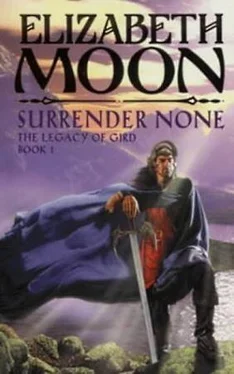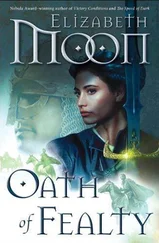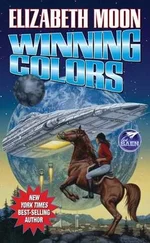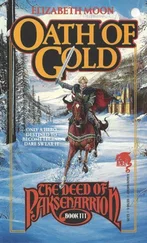Elizabeth Moon - Surrender None
Здесь есть возможность читать онлайн «Elizabeth Moon - Surrender None» весь текст электронной книги совершенно бесплатно (целиком полную версию без сокращений). В некоторых случаях можно слушать аудио, скачать через торрент в формате fb2 и присутствует краткое содержание. Жанр: Боевая фантастика, на английском языке. Описание произведения, (предисловие) а так же отзывы посетителей доступны на портале библиотеки ЛибКат.
- Название:Surrender None
- Автор:
- Жанр:
- Год:неизвестен
- ISBN:нет данных
- Рейтинг книги:3 / 5. Голосов: 1
-
Избранное:Добавить в избранное
- Отзывы:
-
Ваша оценка:
- 60
- 1
- 2
- 3
- 4
- 5
Surrender None: краткое содержание, описание и аннотация
Предлагаем к чтению аннотацию, описание, краткое содержание или предисловие (зависит от того, что написал сам автор книги «Surrender None»). Если вы не нашли необходимую информацию о книге — напишите в комментариях, мы постараемся отыскать её.
Surrender None — читать онлайн бесплатно полную книгу (весь текст) целиком
Ниже представлен текст книги, разбитый по страницам. Система сохранения места последней прочитанной страницы, позволяет с удобством читать онлайн бесплатно книгу «Surrender None», без необходимости каждый раз заново искать на чём Вы остановились. Поставьте закладку, и сможете в любой момент перейти на страницу, на которой закончили чтение.
Интервал:
Закладка:
He was, as he had never expected to be, alive and a hero. Everyone knew the big blocky man in blue (it seemed simpler to keep wearing that color; when he didn’t, someone would give him a blue shirt “to remember by”) on the stocky gray—almost white now—horse. Children ran out to meet him on the way, calling to him, running beside the horse. If his route was known, there would be bits of blue tied to branches, blue yarn braided into women’s hair, blue flowers, in season, thrown before him. If he surprised a village, they would drop their tools and gather, beg for his blessing, bring all their problems for him to solve.
He found that they wanted him—his physical touch, his presence, his listening ear—far more than they wanted his ideas. They had each their local heroes—someone who had fought with him at Grahlin or Greenfields, Blackbone Hill or Brightwater. Every little ambush, each battle, had its heroes, and they had all gone home, if they lived, to tell the tale their own way. Gird heard with some astonishment that he had thrown a horse and rider “so far the crash was not heard when they landed” in one battle, and someone who had lost a leg and survived (Gird remembered the man clinging to his hand, begging for death) came hopping up without it to hug Gird and pound his back and show off his children.
But when he tried to speak to them of the future, only a few paid heed. The others were busy with their work, with lives deferred. They had won, and life was good; they feared nothing but the lords’ return, and needed nothing but Gird’s friendship.
Some were interested in the legal reforms he instituted. Merchants, craftsmen, and even a few former farmers—but their interest in abstract justice and perfect fairness gave way to factional argument far more often than Gird had hoped. Eventually, after hours and days and even seasons of wrangling, one group would agree on a particular rule, only to have those who had not attended the original conference refuse to follow it. Then everyone appealed to Gird, and he found himself making the very judgments he had called on others to make.
Most folk understood the need to have some armed force for protection, both locally, against brigands, and regionally, in case of invasion. But fewer wanted to support the barton and grange organization Gird envisioned, with adequate, uniform training for yeomen, yeoman-marshals, marshals, with regular drill for all yeomen even in times of peace.
He was troubled, as well, by the feeling that he had had since surviving the battle at Greenfields. He had been told that he could not see the peace he would bring, and here it was, all around him. Either the gods were wrong—and he could not believe that—or he had misunderstood. He didn’t believe that, either. Which meant that the peace he saw was somehow not real. Something was wrong with it, as something had been wrong after Norwalk Sheepfolds. He had asked then if it was his fault that he would not see true peace, and had had no answer. He asked himself the same question now: was the wrong here his fault? Had he failed in something he should have done, that would have brought true and lasting peace—had he withheld something he should have given?
His own memories reminded him of his mistakes; the victories others boasted of in his name seemed to him full of his miscalculations, deaths he’d caused by his stupidity or carelessness. That one fit of drunkenness, which left a legacy still; even now, even when everyone called him Father Gird, someone would take the mug from his hand with a kindly smile, when he’d had what they thought was enough. He had done what he set out to do—free the land of its bad rulers—but every time his gray horse ticked a hoof on a skull, or he saw the white end of a bone turned up as someone plowed a field, he shuddered.
He traveled widely, urged on by that vague but persistent uneasiness. Everywhere he went he seemed to see prosperity returning, as farms returned to burnt-over fields, as once-deserted villages hummed with life. His people had more flesh on their bones; foreign traders complained of their scant profits, but kept returning. So did wealthy craftsmen who had thought a peasant kingdom would have no need of their abilities. His new coinage, which the magelady had so complained about, circulated more freely than the old ever had. When Luap first mentioned what he saw as the problem, the continuing bitterness between former magelord landholders and tenants, Gird scoffed at him.
“They won’t hurt children,” he said. “The adults, maybe, but—”
“I’ve talked with Autumn Rose.” Luap said the name without embarrassment; Gird still thought it was silly. If she wanted to conceal her real name, she could have taken any simple one. She had changed, over the years, but she still had what he thought of as lordly arrogance. He let himself remember the first time she had laughed at herself, admitted that she could be as ridiculous as anyone. Was it then that she began to change, to give up her old grievance against the dead king. She had made, as Arranha had predicted, a good marshal when she finally quit dramatizing her lost love. He realized his mind had wandered, as it did more often now, and came back to find that Luap was watching him, patiently. Luap went on. “She thinks it will get worse. There are too many of the halfbred children, and sometimes the power sleeps a generation or so, cropping out unexpectedly. Besides, you said not all the adults were guilty, that if they wanted to live under your laws they would be safe.”
“So I did, and so they are.” He hated it when Luap was patient with him, as if he were a doddering old man; it made him grumpy.
Luap shook his head. “If they come so far as your courts, they are. Many don’t. There was a man killed in the south, near Kelaive’s old domain—” The regions had not been renamed; Gird decided they needed to do that next. The very name Kelaive wakened old angers. “—a younger son, he could make light with his finger, enough to light a candle. Stoned, Gird, and no one will admit to having anything to do with it. You can lose your temper and stab someone in a rage, or bash his head with one rock, but stoning—that takes time, and many people.”
“What did they say he’d done?” He must have done something, to arouse that kind of anger.
“They don’t say, because no one admits to doing it. Cob’s your high marshal down there; you know he’s sensible.” He had always liked Cob, whose blunt, matter-of-fact approach to life had not changed through war or peace. He still limped, from the foot broken outside Grahlin, but never complained.
“What does Cob say?”
Luap pulled out the message and read it aloud. “Tell Gird he must do something, perhaps send the mages away.”
“Away where? Where would people trust me to send them? Those here don’t want to live in Tsaia, won’t go back to Aarenis—and they say there’s nothing left in Old Aare. Besides, if I send them away, that kind of folk will worry that they’re plotting together. I hear enough of that on the east side now, worrying that Tsaia will invade. It’ll wear itself out, in time; what takes years to grow can’t wither in a moment.”
He went back to the maps, determined to eliminate Kelaive’s name before the day was out. The old names, the folk names, belonged: Burry and Berryhedge (four families lived there now, in the ruins) and Three Springs. Get rid of the lords’ newfangled names; he would agree that some of their family members were innocent, but no need to honor a bad name by putting it on a map. He was uneasily aware that some bartons had indulged in more looting and destruction than he would have approved if he’d been there, but he was sure—he hoped he was sure—that that had been a single overreaction to years of oppression.
Читать дальшеИнтервал:
Закладка:
Похожие книги на «Surrender None»
Представляем Вашему вниманию похожие книги на «Surrender None» списком для выбора. Мы отобрали схожую по названию и смыслу литературу в надежде предоставить читателям больше вариантов отыскать новые, интересные, ещё непрочитанные произведения.
Обсуждение, отзывы о книге «Surrender None» и просто собственные мнения читателей. Оставьте ваши комментарии, напишите, что Вы думаете о произведении, его смысле или главных героях. Укажите что конкретно понравилось, а что нет, и почему Вы так считаете.












